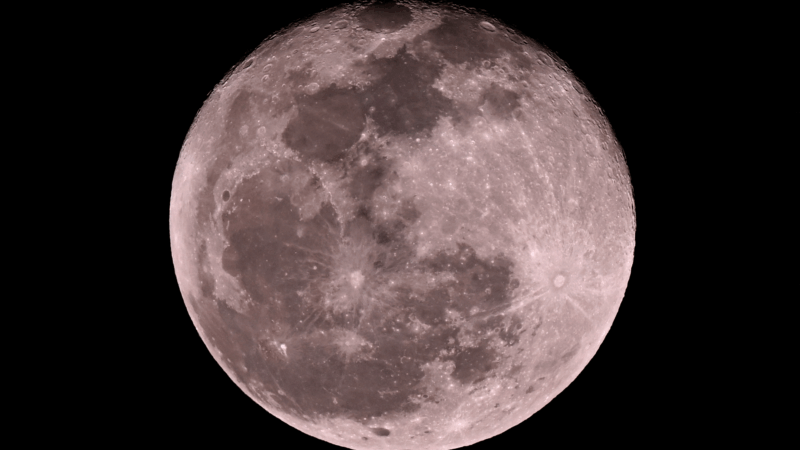A ‘black moon’ will appear in the sky this weekend, but you won’t see it. Here’s why
There are “blood,” “super” and “blue” moons, and then there’s the “black” moon.
The “black moon,” a rare phenomenon that occurs during a new moon phase of the lunar cycle, will occur this weekend. But don’t get your hopes up too much, scientists say, because it will be technically invisible.
Here’s what to know.
What is it?
When the moon is nearly between Earth and the sun, one side of the moon faces the sun, and that side is illuminated, but the side the Earth sees is dark. This is called the new moon phase of the lunar cycle — when the moon isn’t visible at night.
During this phase, the illuminated side of the moon is not only facing away from Earth, but it is also up in the sky during the daytime and rises and sets at the same time as the sun, according to NASA. The moon is gravitationally locked with Earth, meaning we always see the same side of the moon from Earth.
It’s unclear when it was coined, but “black moon” is an unofficial astronomical term. A new moon is considered by some to be a black moon one of two ways. It can happen when a new moon appears twice in one month (new moons usually happen once per month) or when there are four new moons in one season. When there are four new moons in one season, the third new moon is called a “black moon.”
Saturday’s black moon is the third new moon of the summer season. The fourth new moon will occur on Sept. 21, one day before the first official day of the fall season or autumnal equinox in the Northern Hemisphere — when the sun moves directly over the equator, creating equal amounts of daylight and night time.
You won’t see it
You won’t be able to see the black moon, but it will still be there in the sky. Since the illuminated part of the moon will be facing away from Earth, the moon will appear to be invisible in the night sky.
However, this is a great opportunity to stargaze and see the Dumbbell Nebula (M27), known for its dumbbell-like shape, which can be seen with a telescope between the Altair and Deneb stars, according to NASA.
When is the next “black moon”?
The next black moon is set to occur Aug. 31, 2027, according to Space.com. That new moon will be the second new moon phase in one calendar month.
Guerilla Toss embrace the ‘weird’ on new album
On You're Weird Now, the band leans into difference with help from producer Stephen Malkmus.
Nancy Guthrie search enters its second week as a purported deadline looms
"This is very valuable to us, and we will pay," Savannah Guthrie said in a new video message, seeking to communicate with people who say they're holding her mother.
Immigration courts fast-track hearings for Somali asylum claims
Their lawyers fear the notices are merely the first step toward the removal without due process of Somali asylum applicants in the country.
Ilia Malinin’s Olympic backflip made history. But he’s not the first to do it
U.S. figure skating phenom Ilia Malinin did a backflip in his Olympic debut, and another the next day. The controversial move was banned from competition for decades until 2024.
‘Dizzy’ author recounts a decade of being marooned by chronic illness
Rachel Weaver worked for the Forest Service in Alaska where she scaled towering trees to study nature. But in 2006, she woke up and felt like she was being spun in a hurricane. Her memoir is Dizzy.
Bad Bunny makes Puerto Rico the home team in a vivid Super Bowl halftime show
The star filled his set with hits and familiar images from home, but also expanded his lens to make an argument about the place of Puerto Rico within a larger American context.






